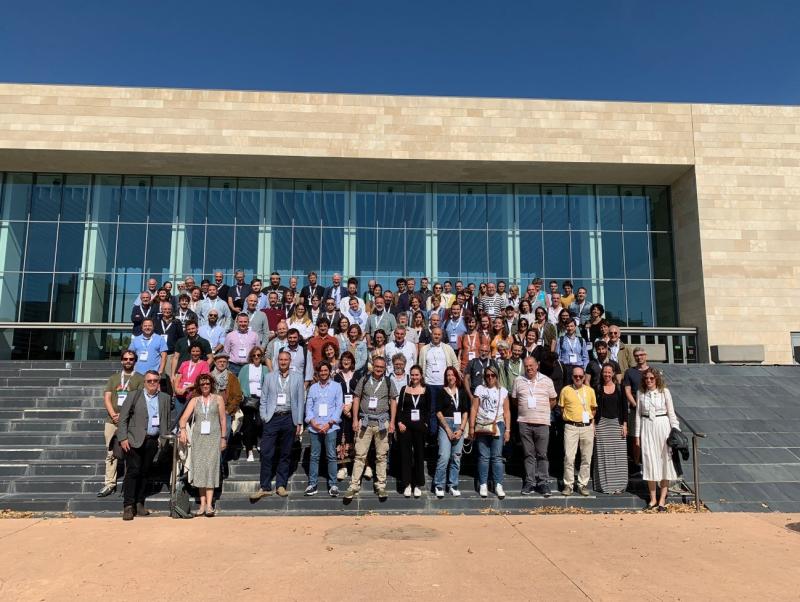The IOBC/WPRS Integrated Protection in Viticulture working group held an international meeting in Logroño from October 3 to 5, 2023, organized by the Institute of Vine and Wine Sciences (ICVV) in collaboration with the University of La Rioja and the Government of La Rioja. Over the course of three days, various sessions were held addressing different areas of integrated vine management, including advances in knowledge and the development of new solutions against diseases, new strategies for arthropod control, sustainable soil management, and the implementation of sustainable management tools in viticulture, with particular emphasis on organic production.
The multidisciplinary nature of the conference, but especially the profile of the majority of researchers within the IOBC's sustainable viticulture working group, made these sessions a perfect forum to learn about the latest scientific advances in the main pests, diseases, and weeds affecting vines, including their epidemiology and issues, as well as new approaches and control tools that can impact their management. The specific and holistic treatment of soil management was highlighted to strengthen beneficial functions and reduce the impact of biotic and abiotic threats in the vineyard. The value of organic viticulture was also emphasized, and discussions took place regarding its threats and strengths in this multidisciplinary forum.
Special mention goes to the opening presentation by Chloé Delmas (INRAE, Bordeaux), where she spoke about the effect of water stress on the development of various diseases affecting vines. In turn, the invited presentation by José Ramón Úrbez-Torres (Government of Canada) focused on detecting and controlling viruses in vines. At the same time, Elisa González-Dominguez (Horta SRL) addressed different epidemiological and damage models applied to vines and their impact on sustainable management. Jordi Recasens (ETSEA, University of Lleida) delved into how using cover crops and organic mulches is a sustainable and effective strategy for weed control in vineyards. Also, concerning applied entomology, César Gemeno (ETSEA, University of Lleida) showed the importance of communication between arthropods and plants and how it can be used in crucial aspects of pest management. Finally, the last invited presentation, offered via streaming by Miguel Ángel Altieri (University of California, Berkeley), contextualized the control of vine pests, diseases, and weeds in the new paradigm of sustainability from the perspective of Agroecology. This theme is gaining increasing relevance in international policies and management, such as the European Green Deal and various UN resolutions related to biodiversity conservation, resource accessibility, and equity in their use. In addition to these main talks, 47 oral and 40 poster communications were presented, bringing together researchers from 16 countries.
Abstracts can be downloaded at the following link:
https://www.icvv.es/english/sites/default/files/archivos/abstracts_book_integrated_protection_in_viticulture.pdf








